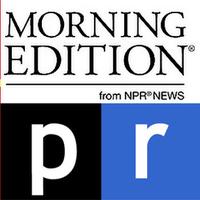Iceland Finds Itself In The Middle Of Panama Papers Leak
RENEE MONTAGNE, HOST:
The Panama Papers - the leak of millions of documents from a Panamanian firm specializing in offshore shell companies - has featured, not surprisingly, some of the world's most corrupt regimes. But the leak is having its most immediate impact in Iceland. Yesterday Iceland saw the largest protest in its history, demanding the resignation of Prime Minister Sigmundur Gunnlaugsson. For more, we reached Haukur Holm. He's a reporter with the Icelandic National Broadcasting Service. Good morning.
HAUKUR HOLM: Good morning.
MONTAGNE: Now, could you break down for us as simply as you can what it is in the Panama Papers that look so bad for the prime minister?
HOLM: It turned out that he and his wife have an offshore company there. His wife inherited a princely sum of money from her parents. And one of the Icelandic banks, its branch in Luxembourg, started a company through the Panama law firm in the British Virgin Islands - Tortola. And it turned out that it was not known to Icelandic voters or Icelanders in general that the couple owned this offshore company.
MONTAGNE: There was an additional aspect to this other than that he hid his money because as I understand the prime minister has come out and said, I always paid taxes. This was not a super-secret - but that it got involved with the banks that failed back in the worldwide financial crash. And Iceland of course was hit pretty hard.
HOLM: Yeah. This government came into power in 2013. And one of the main goals of this government was to negotiate with the creditors of the fallen banks. It turned out that the prime minister's wife is one of the creditors. So he was actually sitting at both sides of the table.
MONTAGNE: So theoretically, a conflict of interest.
HOLM: Yes, but his defense has always been that nobody worked as hard as he against the creditors of the bank and therefore also against his wife's interests. But voters don't think that that is actually the point. MONTAGNE: He just insisted he had done nothing wrong.
HOLM: Yeah. His defense has always been that they paid taxes of those assets. But because it's an offshore company, there's no way of really telling what the company is worth. MONTAGNE: Why - remind us why this would have touched a nerve in Iceland.
HOLM: It touched a nerve because in the bank crisis or in the crash in 2008 when the Icelandic banking system and really Icelandic society collapsed, Iceland was actually pretty close to being bankrupt. So we have been building up the society again, the economy and our reputation and doing pretty well actually. When the Panama Papers came out, it was just like deja vu really. I think most Icelanders felt, OK, we're back in 2008 again. Now we are the bad guys once more. I think we haven't really emotionally recovered from the bank crisis. So when this came out on Sunday night, it just kicked us down again.
MONTAGNE: And then out into the streets to say, that's not us? HOLM: Yeah. And that really made people angry because we thought we were doing really better. We thought that there have been some reforms and there were no more such secrets as there were before the bank crisis because people were really surprised in 2008, when the banks collapsed, how rotten the system really was.
MONTAGNE: Well, thank you very much for joining us.
HOLM: My pleasure.
MONTAGNE: Haukur Holm is a reporter with RUV. He spoke to us from Reykjavik, Iceland.

